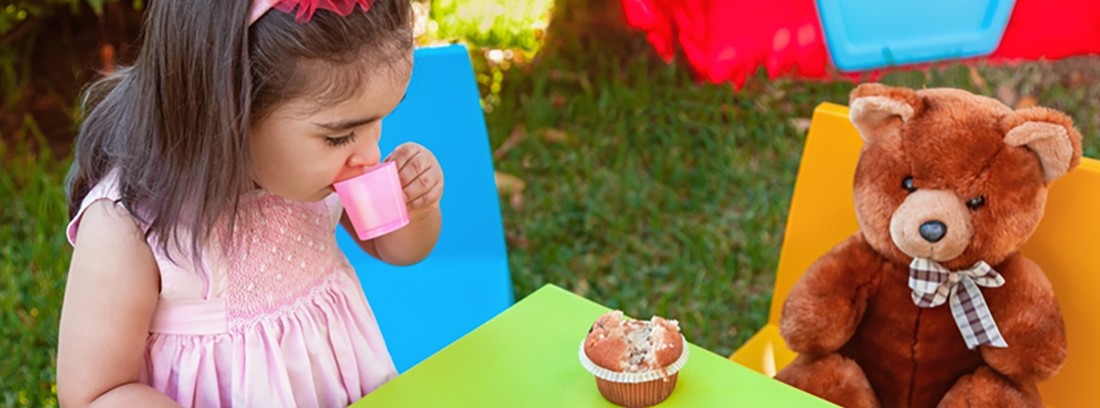Children with imaginary friends
 WHAT YOU NEED TO KNOW ...
WHAT YOU NEED TO KNOW ...
- Although it worries some parents, one in three children has imaginary friends and it should be considered normal.
- Not only are they not pathological hallucinations but it is considered that it can help the emotional development of the child.
- If the imaginary friend lasts beyond eight years, if it is used to avoid responsibilities and other types of emotional ties, it should be consulted.
positive effects
Evan Kidd, an Australian psycholinguist at Melbourne's La Trobe University, conducted a study that concluded that university students who had had a fictional friend in their childhood displayed greater communication skills, greater empathy and creativity.
Approximately one in three children create invisible friends and may be children with a greater capacity to express feelings, able to understand the emotions of others and allow them to relate to the outside world through play and fantasy. In this way the feelings, concerns or fears are expressed, not repressed, allowing a very positive emotional development for the child. The reason why the invisible friend helps to improve empathy is based on the fact that the child is able to assume the role of a character and put himself in the place of the other.
We know that these types of fantasies are not pathological hallucinations because the child is capable of creating and controlling them and, fortunately, they have an expiration date. Therefore, the child should not be ridiculed or exposed in front of family or friends. Respecting their emotions or fantasies favors the child's self-esteem, always knowing where the limit is.
When to see a specialist
Despite how wonderful it is to have an imaginary friend, we must take into account the following circumstances in which we should consult with a pediatrician or a child psychologist:
- Imaginary friends that last beyond eight years (there are rare cases where invisible friends last until adolescence)
- If through imaginary friends the child shuns responsibilities, does not take the blame for his mischief or always blames imaginary friends for what he has not done well.
- If the invisible friend makes it difficult to bond with peers or with family members.
- If you prefer to be with your imaginary friend more than with other people.
(Updated at Apr 14 / 2024)